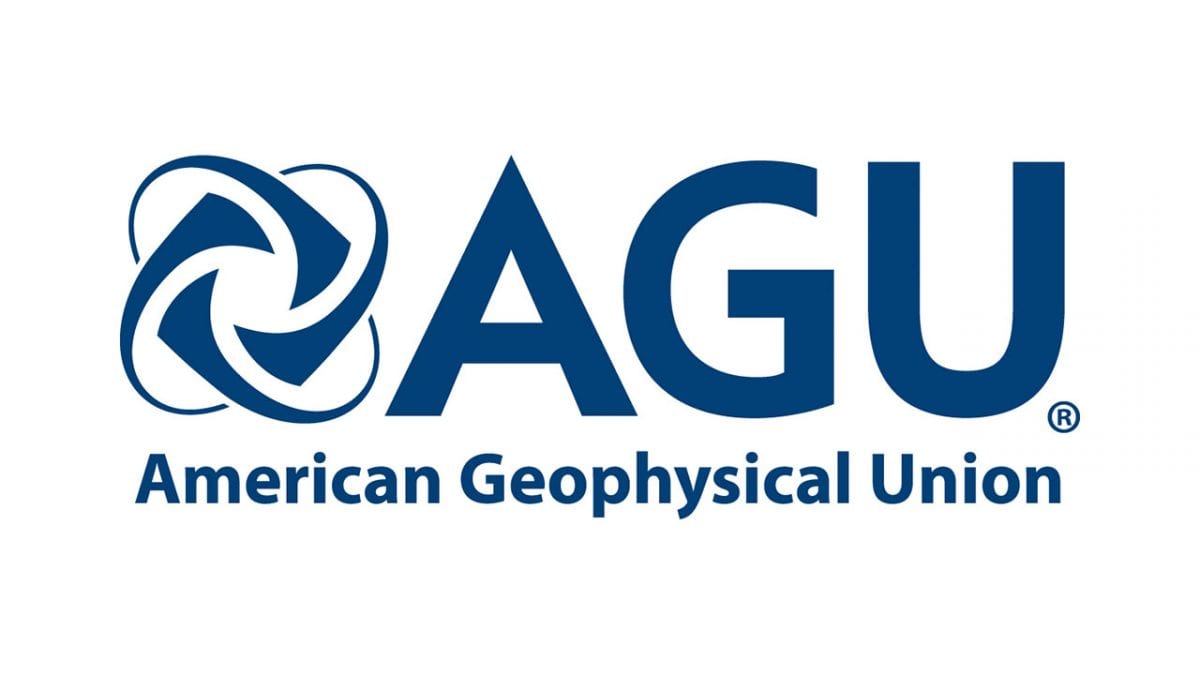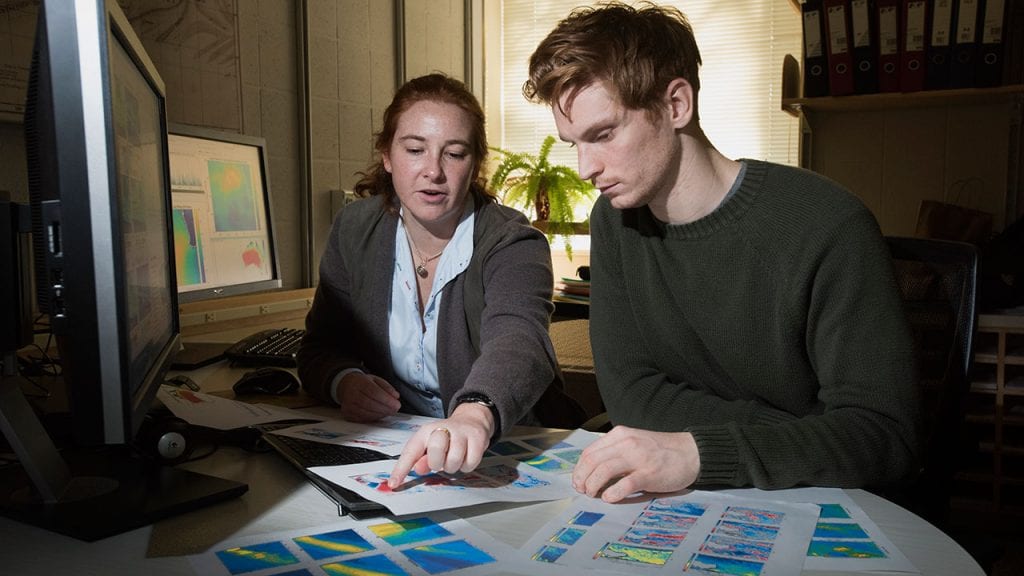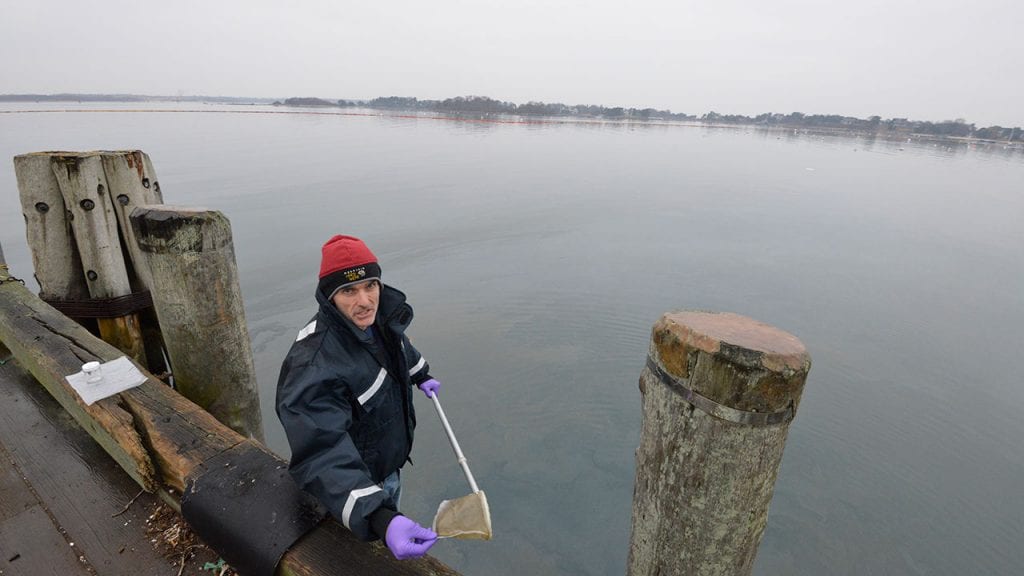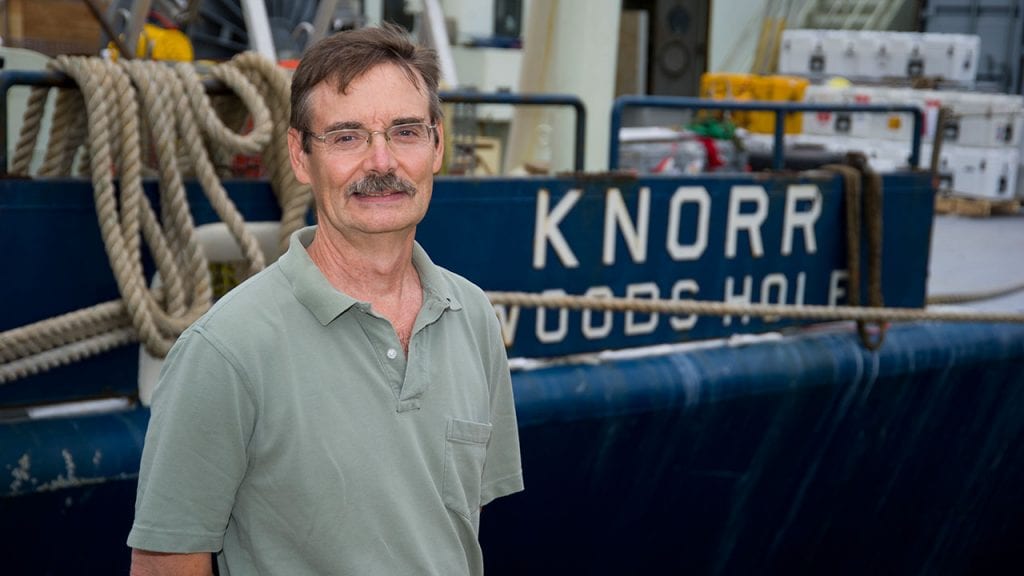Three WHOI Scientists to be Honored by AGU

September 12, 2018
Three scientists from the Woods Hole Oceanographic Institution (WHOI) are among those to be honored by the American Geophysical Union (AGU) with awards or special lectures at its upcoming fall meeting December 10 to 14 in Washington, D.C. The awardees include Caroline Ummenhofer, who will receive the James B Macelwane Medal, and Chris Reddy, who will receive an Ambassador Award. In addition, Ray Schmitt was selected to deliver the Harald Ulrik Sverdrup Lecture.
Ummenhofer is a climate modeler and Associate Scientist in the Department of Physical Oceanography. Her research addresses short- and medium-term (seasonal to decadal) climate variability, the global water cycle, extreme climatic events, monsoon dynamics, paleoclimate of the last millennium, and the effects of climate variability and climate change on agriculture. In particular, her work focuses on changes in the Indian Ocean and its role in regional rainfall, especially in the occurrence of droughts in surrounding countries, as well as ways to provide useful knowledge to stakeholders such as farmers and policy-makers. The James B. Macelwane Medal is given to three to five honorees annually in recognition for “significant contributions to the geophysical sciences by an outstanding early career scientist.” It was originally established in 1961 and renamed in 1986 in honor of former AGU president James B. Macelwane (1953–1956).
Reddy is a chemist and senior scientist in the Department of Marine Chemistry and Geochemistry. His research addresses the source, transport, and fate of organic contaminants in coastal and oceanic water, as well as the development of new products from natural chemicals found in the ocean. He has been active in the response, remediation, and long-term monitoring of several oil spills around the world, including Deepwater Horizon in the Gulf of Mexico. The Ambassador Award is given annually to as many as five honorees in recognition for “outstanding contributions to one or more of the following area(s): societal impact, service to the Earth and space community, scientific leadership, and promotion of talent/career pool.” Established in 2013, the Ambassador Award will honor members whose achievements extend beyond those recognized by traditional scientific discipline awards.
Schmitt is a senior scientist in the Department of Physical Oceanography. His career as an oceanographer spans more than 40 years, during which time he has made fundamental advances in understanding the way the ocean mixes on scales from fractions of an inch to hundreds of miles. In addition, he has examined the global water cycle by using patterns of sea-surface salinity to reveal evaporation and precipitation patterns on the ocean and changes in salinity to predict rainfall on land. Schmitt has also been instrumental in designing new tools for researchers to study the ocean, including microprofilers and sensors for autonomous gliders and floats. The Harald Ulrik Sverdrup Lecture honors the life and work of geophysicist Harald Sverdrup and is presented at the AGU Fall Meeting and the Ocean Sciences Meeting in even-numbered years. The Sverdrup Lecturer is selected for “outstanding contributions to the basic science of the atmosphere and the oceans and/or unselfish service promoting cooperation in atmospheric and oceanographic research.”
The AGU is an international scientific society dedicated to promoting and communicating discovery in Earth and space science for the benefit of humanity. Its annual fall meeting is one of the largest scientific meetings in the world, attracting more than 23,000 researchers in earth, ocean, atmospheric, and space sciences each year.
The Woods Hole Oceanographic Institution is a private, non-profit organization on Cape Cod, Mass., dedicated to marine research, engineering, and higher education. Established in 1930 on a recommendation from the National Academy of Sciences, its primary mission is to understand the ocean and its interaction with the Earth as a whole, and to communicate a basic understanding of the ocean’s role in the changing global environment. For more information, please visit www.whoi.edu.



